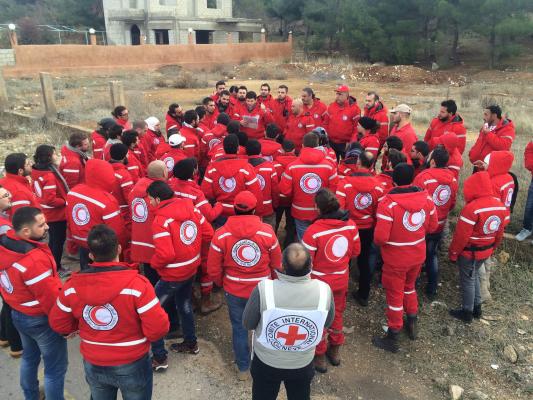
A handout picture provided by the International Committee of the Red Cross shows a group of Syrian Arab Red Crescent workers being briefed before heading out in a convoy to deliver vital aid to the town of Madaya, Syria, 14 January 2016.- EPA/SOMAR REZK/ICRC/
Despite a nearly month-old US-Russia engineered ceasefire agreement, aid deliveries to besieged areas of Syria remain hard to make, said a Red Cross spokesman on Wednesday, calling for more regular access to those in need of help.
Since the start of the cessation of hostilities agreement, the United Nations, Red Cross and Syrian Red Crescent have delivered aid to some besieged areas.
The ceasefire has contributed to reducing violence in parts of western Syria; however, it hasn’t been able to facilitate delivery of aid completely. Hundreds of thousands of Syrians across the country remain besieged by government forces or armed groups including ISIS terrorist group.
“The cessation of hostilities – honestly I don’t see the difference. The hard to reach areas continue to be hard to reach, for several reasons: humanitarian negotiations, security, coordination on the ground, the procedures,” International Committee of the Red Cross (ICRC) spokesman Pawel Krzysiek said.
Krzysiek said a drop in violence had provided some respite in areas such as al-Houla in Homs province, where the Red Cross and Red Crescent made a rare aid delivery overnight.
But access is still not regular enough.
“Even if people… received aid before the winter, like six or seven months ago, those people consumed those supplies,” he said. “We need to be given regular access,” particularly to areas like al-Houla, where aid reached 70,000 people.
